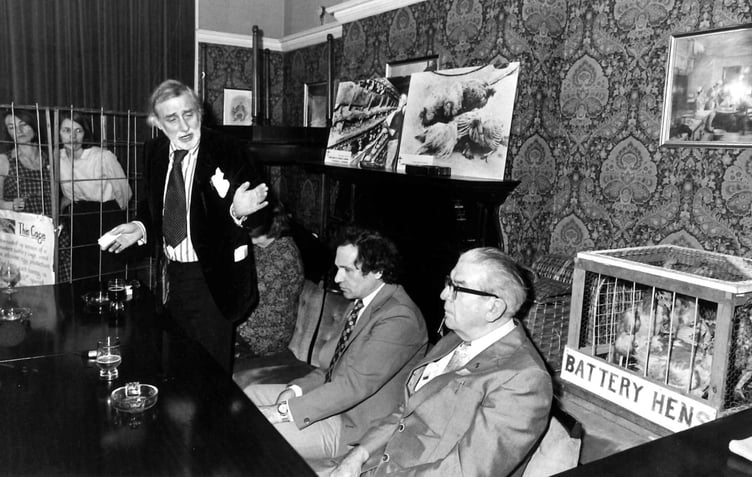It started with a sales pitch that seriously backfired.
Sometime in the 1960s a man from the Ministry of Agriculture visited a modest chicken farm in Froxfield run by Peter and Anna Roberts.
His aim was to encourage the pair to embrace battery farming, but his visit led to a charity that promoted the very opposite. It would leave massive hoof-prints on the farming world and changed the diets of countless people from well beyond East Hampshire.
The story of Compassion in World Farming has finally been told by the granddaughter of the East Hampshire couple who started it all.
Elizabeth Silverthorn spent months researching the charity’s history from its early beginnings in Greatham to the international good cause it is today.
The result is Roaming Wild: The Founding of Compassion in World Farming, a powerful true story about Anna and Peter and how they became among the world’s leading animal rights campaigners.
“I think they started questioning things in farming a few times before the MOA came along,” said Emma, who was encouraged to write the book by the company’s CEO, Philip Lymbery.
“That was a bit of an omen. They were told battery farming was this ‘great new thing’ and it would be more economical but they didn’t agree with it. They were doing what we now call free range farming.
“They didn’t want to get into battery farming because they didn’t think it was ethical, and that got them thinking.”
The charity was launched in 1967 and operated from the back room of their Greatham property for ten years, with expansion prompting a move to a proper office in Petersfield.
Their legendary shop, The Bran Tub, opened shortly afterwards and remained a popular fixture on Lavant Street until 2022.
Elizabeth discovered during her research that Peter and Anna went their entire lives without drawing a wage and only started to fully appreciate the charity’s impact while researching.
She added: “We didn’t really talk about the charity too much back in the day, so the research was extensive and went back to their original farm.
“They’ve got branches all over the world now and some of the things they’ve done have been huge. Did you know, for instance, that CIWF got a clause entered into the Treaty of Rome? I was staggered.”
That clause – the Sentient Beasts Act - is arguably one of CIFW’s greatest achievements and followed “about ten years” of solid campaigning.
The charity submitted a petition to the European Parliament in 1991 for animals to be recognised as sentient beings, capable of suffering, as they were merely treated as “goods” at this point.
Their campaigning was a success and it became a protocol with legal status with the 1997 Treaty of Amsterdam.
Elizabeth added: “They were told at the time that it would be unrealistic but it’s made a huge impact.
“A lot of the stuff they’ve suggested and fought for is about common sense.”
Roaming Wild is published by Whittles and is available to buy through One Tree Books and most bookshops with 40 per cent of the sales going to CIWF. There is a 20 per cent discount if ordered online through www.whittlespublishing.com/Roaming_Wild, just enter CIWF20 at the checkout.





Comments
This article has no comments yet. Be the first to leave a comment.